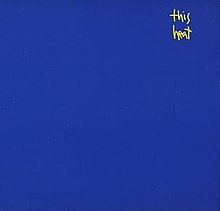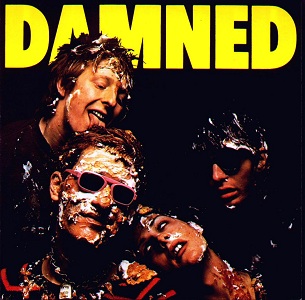
Damned Damned Damned is the debut studio album by English punk rock band the Damned. It was released on 18 February 1977 by Stiff Records. Produced by Nick Lowe, Damned Damned Damned was the first full-length album released by a UK punk group. The album peaked at No. 34 on the UK Charts.
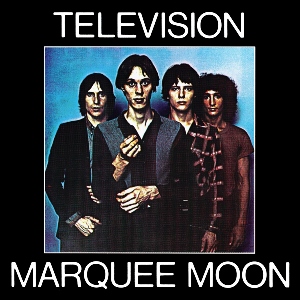
Marquee Moon is the debut album by American rock band Television. It was released on February 8, 1977, by Elektra Records. In the years leading up to the album, Television had become a prominent act on the New York music scene and generated interest from a number of record labels, eventually signing a record deal with Elektra. The group rehearsed extensively in preparation for Marquee Moon before recording it at A & R Recording in September 1976. It was produced by the band's frontman Tom Verlaine and sound engineer Andy Johns.

My Aim Is True is the debut studio album by the English singer-songwriter Elvis Costello, originally released in the United Kingdom on 22 July 1977 through Stiff Records. Produced by Stiff artist and musician Nick Lowe, the album was recorded from late 1976 to early 1977 over six four-hour studio sessions at Pathway Studios in Islington, London. The backing band was the California-based country rock act Clover, who were uncredited on the original release due to contractual difficulties. At the time performing as D.P. Costello, Costello changed his name to Elvis after Elvis Presley at the suggestion of the label, and adjusted his image to match the rising punk rock movement.

This Heat were an English experimental rock band, formed in early 1976 in Camberwell, London by multi-instrumentalists Charles Bullen, Charles Hayward and Gareth Williams.

Pink Flag is the debut album by the British post-punk band Wire. It was released in November 1977 through Harvest Records. The album was critically acclaimed on release, and has since been highly influential; today it is regarded as a landmark in the development of post-punk music.

Dub Housing is the second album by American rock band Pere Ubu. Released in 1978 by Chrysalis Records, the album is now regarded as one of their best, described by Trouser Press as "simply one of the most important post-punk recordings."

Slates is an EP by the Fall, released on 27 April 1981 by Rough Trade Records. It was one of singer Mark E. Smith's favourite Fall releases, and he claimed it was aimed at "people who didn't buy records".
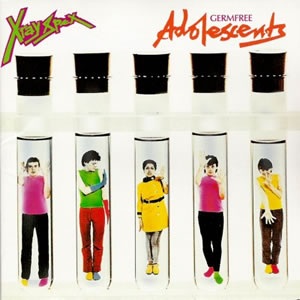
Germfree Adolescents is the 1978 debut album of English punk rock band X-Ray Spex. It contained the UK hit singles "The Day the World Turned Dayglo", "Identity" and "Germ Free Adolescents" which reached No. 18 in November 1978. Upon release, the critics noted it was not all new material: five songs on the twelve tracks had already been released on A-sides and B-sides of singles.
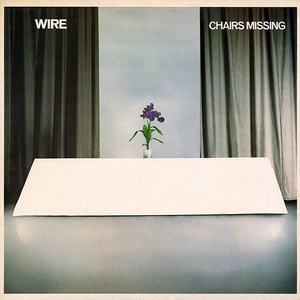
Chairs Missing is the second studio album by the English rock band Wire. It was released on 8 September 1978 through Harvest Records. The album peaked at number 48 in the UK Albums Chart.
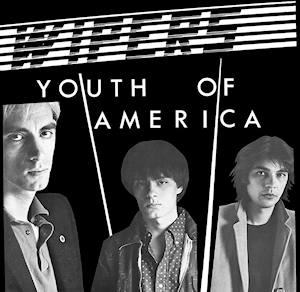
Youth of America is the second studio album by American punk rock band Wipers. It was released in 1981 by record label Park Avenue.

Dragnet is the second studio album by English post-punk band the Fall, released on 26 October 1979 through Step-Forward Records. Appearing less than eight months after its predecessor, Live at the Witch Trials,Dragnet established at an early stage two key patterns characteristic of the group's future: that of high productivity and that of a regular turnover of group members.
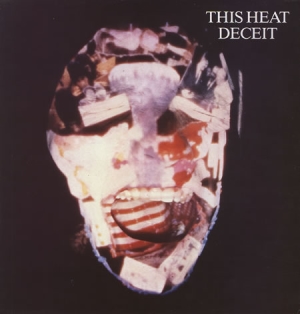
Deceit is the second and final studio album by English experimental rock band This Heat, released in September 1981 by Rough Trade Records. As with their self-titled debut album, the tracks on Deceit were assembled from largely improvised recordings that the band accumulated since their inception in 1976, with varying degrees of audio quality. However, it is generally considered to be more song-oriented than its largely abstract predecessor. The title is in part a pun on the band's name.

The Blue Mask is the eleventh solo studio album by American rock musician Lou Reed, released in February 1982, by RCA Records. Reed had returned to the label after having left Arista Records. The album was released around Reed's 40th birthday, and covers topics of marriage and settling down, alongside themes of violence, paranoia, and alcoholism.

Music for Pleasure is the second studio album by English punk rock band the Damned. It was released on 18 November 1977 by Stiff Records. The album failed to chart in the UK.

Vivien Goldman is a British journalist, writer and musician.

Joggers and Smoggers is a double album by punk artists The Ex, released in 1989 as a double vinyl record album, and issued as a double CD in 1992. It is the first of the Ex's albums to feature extensive use of improvisation and instruments outside of the standard guitar/bass/drums arrangement of punk rock, as well as great numbers of international guest musicians, most notably New York's Sonic Youth, Glasgow's Dog Faced Hermans, Amsterdam's Instant Composers Pool, as well as numerous folk musicians from a variety of European and Middle Eastern traditions. The album marked a turning point in The Ex's artistry, foreshadowing many collaborations and delvings into avant-garde, experimental, improvisational, folk and world music that the band would mix with their abrasive trademark post-punk sound in the 20 years to come.

Sabotage/Live is a live album by John Cale. It was recorded at CBGB, New York on 13–16 June 1979, and released by SPY Records in December 1979.

Mudbird Shivers is an album by Dutch punk/experimental band The Ex. The album prominently features vocals by guest musician Han Buhrs, who also plays a number of different instruments on the recording. It was released the same year as The Ex's entirely instrumental improv album Instant.

The Buried Life is the second album by American rock band Medicine, released on October 12, 1993 by American Recordings.

The New Age Steppers is the debut studio album by The New Age Steppers. It was released on On-U Sound in 1981.
